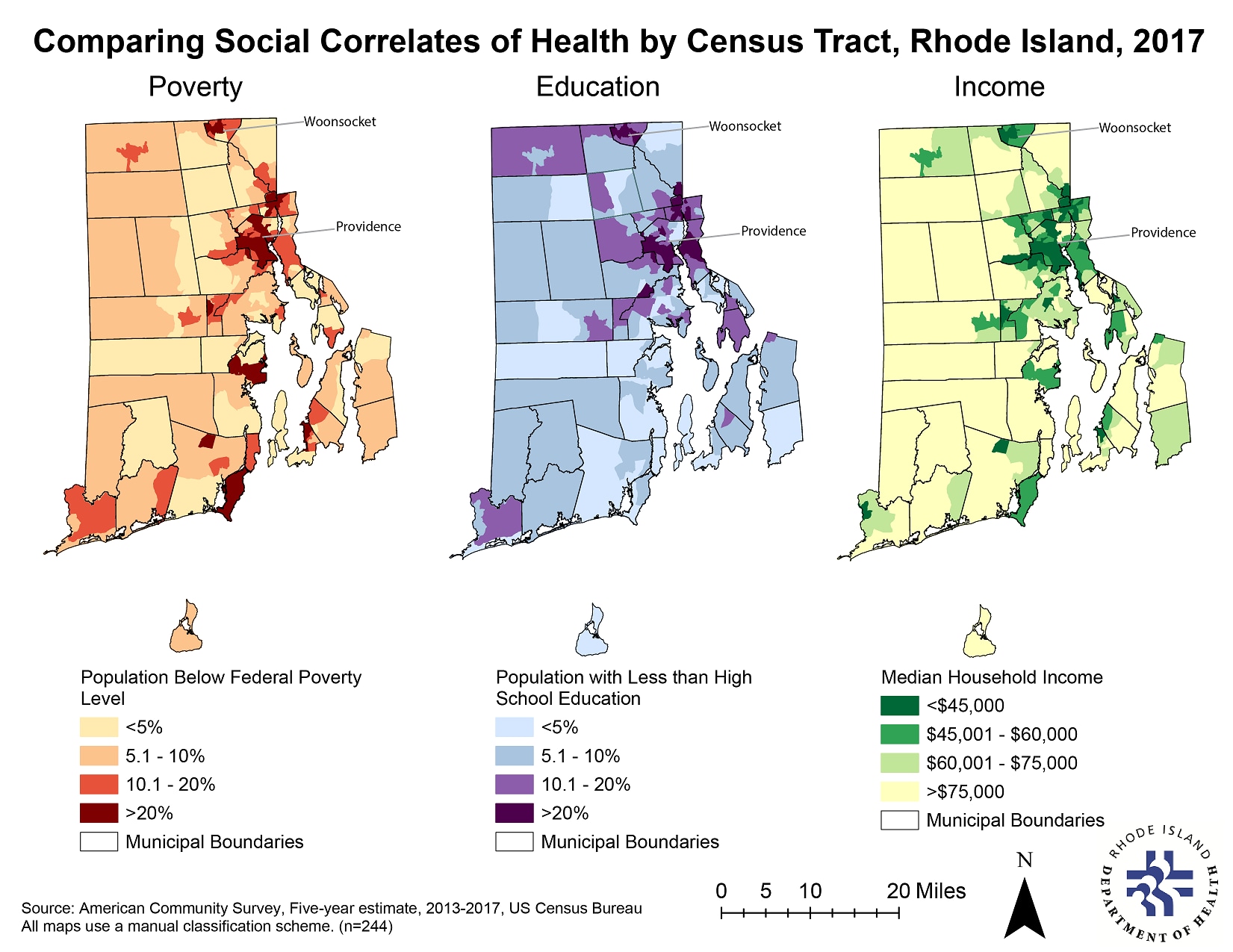Key points
Data sources
These maps illustrate place-based socioeconomic disparities in Rhode Island. The Greater Providence and Woonsocket areas of the state experience higher burdens across three social correlates of health, each of which have been found in the literature to be associated with higher burdens of chronic diseases (and shorter life expectancy). These maps highlight the areas of the state most in need of social and public health supports to improve the communities’ health and well-being.
ArcGIS Pro
American Community Survey, 2017
Census tract data of poverty, education, and income from the American Community Survey 5-year estimate (2013-2017) were displayed using a manual graduated color classification scheme, with the darker shades representing the values of interest. Municipal boundaries were overlaid on the census tract layer. The three social correlates of health (percent of population below federal poverty level, percent of population with less than high school education, median household income) were displayed on separate maps and presented in a one page map series.
These maps will be used to support the need for ongoing place-based initiatives and inter-agency collaboration to address social and environmental correlates of health in Rhode Island’s most vulnerable communities. The Rhode Island Department of Health’s Health Equity Zone Initiative, for example, works to align resources and stakeholders to address social correlates of health within communities. These maps may also contribute to reports for the Commission for Health Advocacy and Equity, a State commission charged with advising the Governor and General Assembly on health equity and aligning statewide planning activities to achieve health equity.
Katelyn St. Amand, Health Equity Zone Evaluator
Rhode Island Department of Health (RIDOH)
katelyn.stamand.ctr@health.ri.gov
(401) 222-5371
Katelyn St. Amand, Rhode Island Department of Health. Accessed from the Centers for Disease Control and Prevention's Chronic Disease Map Gallery.

